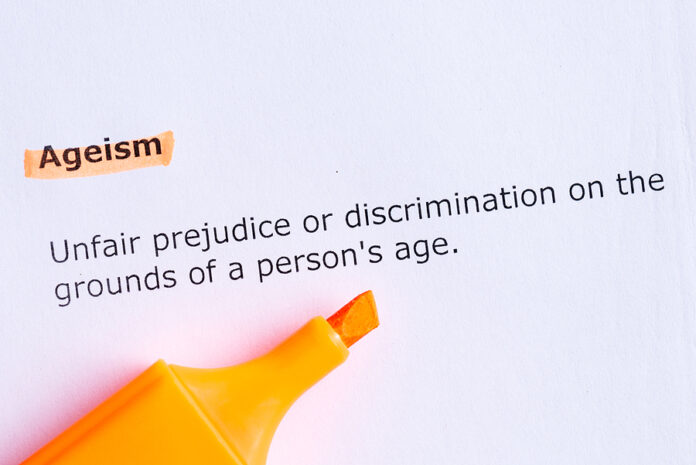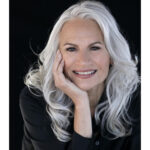
By Dian Griesel
Here’s a riddle: “I’m an ‘age-old’ problem that is often not talked about, swept under the carpet, frequently denied by others that I exist, but am protected by law. What am I?”
Answer: “Ageism.”
Yes, ageism. The World Health Organization (WHO) reports that half the world’s population — that is almost four billion people — is ageist against older people. According to WHO, ageism is a real problem as it “can change how we view ourselves, devalue or limit our ability to benefit from what younger and older populations can contribute, and impact our health, longevity and well-being while also having far-reaching economic consequences.” Numerous articles have also linked ageism to poorer physical and mental health that may increase risky health behaviors and result in a reduced quality of life.
There are laws in place around the world that protect people from ageism in the workplace. In the U.S., the Age Discrimination in Employment Act (ADEA), enacted in 1967, forbids age discrimination against people who are 40 or older. This includes hiring, firing, benefits, pay, and a whole host of other areas related to employment. Despite the law, age discrimination exists and begins to affect people often at a time when they are reaching career highs – in their mid-40s. Because a lot of that discrimination tends to be well-hidden, people simply feel they have no legal protection or that it may be hard to prove.
Fortunately, there are things you can do to help prevent ageism in the workplace. An article published by Atrium, a woman-owned workforce solutions and talent acquisition firm, titled “Preventing Ageism In The Workplace,’ addresses the issue head on. Here are some of the solutions they suggest:
- Creating diversity, equity, inclusion, and belonging (“DEIB”) in your place of business. Many companies have increased their DEIB efforts over the past few years. The key is including the “over 40” group in DEIB efforts to help retain and attract a seasoned group of experienced workers who can and will help your company grow.
- Reviewing your company’s job descriptions and materials to make sure you remove references that may be considered ageist. An example they use is using the phrase “ability to adapt to new systems and technology” vs. “digital native.” After all, let’s face it, none of us over the age of 45 are digital natives. For many of us our first digital experience may have been digital clocks and watches which were introduced in the 70s!
- Creating training programs and learning opportunities. I am an advocate of learning, keeping your mind open to new ideas and to new ways of doing things. An active mind and an active body can help you maintain mental acuity and health.
The number of people 75 and older in the workforce is growing. Ageism can be prevented with your help.
In November 2021 the U.S. Bureau of Labor Statistics reported that the number of people 75 and older in the labor force is expected to grow 96.5% by 2030. To me, that’s great news, something we should be rejoicing about! If you want to continue to work past “normal” retirement age, I wholeheartedly endorse that decision. Take for example Jim Olsen, an 85-year old who is director of business development at QOR360 (where the CEO is 72 years old). Or my friend Judy Katz who is 82 years old and is still rocking her business as a creative writer and ghostwriter.
Many of us would agree that companies can indeed benefit from the wisdom, experience and dedication of the “older” workforce, and will need to heed advice such as that shared by Atrium, in order to prevent and minimize ageism in the workforce. With the U.S. Census Bureau projecting the number of Americans age 65 and older will reach nearly 95 million by 2060, and become about 23% of the population, we are a force to be reckoned with in the workforce. My advice: watch out for the dedicated, driven and most-likely-to-succeed high-performing Silver Disobedients!
 Dian Griesel (also known as @SilverDisobedience) is a corporate strategist for over 35 years, author, daily blogger and Wilhelmina Direct model. Dian founded SilverDisobedience, an active community of people (most of whom are 45+) who are in high-personal growth mode, embracing lifelong learning and committed to living agelessly. Dian has been named a top influencer of the age 50+ demographic by over 15 international media outlets over the past 3 years. She consults with businesses of all kinds on how to understand the value of the “longevity economy” and is uniquely tapped into the real wants and needs of this demographic who are smashing stereotypes.
Dian Griesel (also known as @SilverDisobedience) is a corporate strategist for over 35 years, author, daily blogger and Wilhelmina Direct model. Dian founded SilverDisobedience, an active community of people (most of whom are 45+) who are in high-personal growth mode, embracing lifelong learning and committed to living agelessly. Dian has been named a top influencer of the age 50+ demographic by over 15 international media outlets over the past 3 years. She consults with businesses of all kinds on how to understand the value of the “longevity economy” and is uniquely tapped into the real wants and needs of this demographic who are smashing stereotypes.






